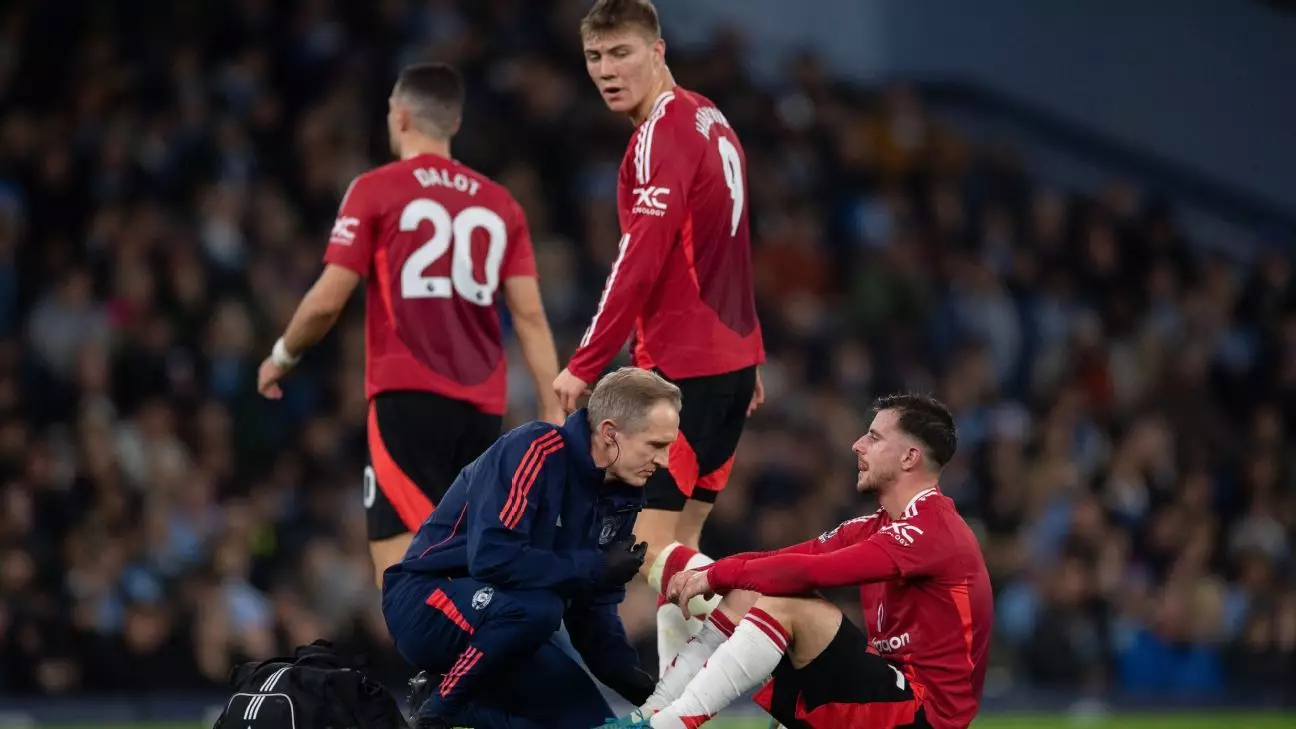Mason Mount’s recent injury during the thrilling 2-1 victory over Manchester City has once again cast a shadow over his season and the aspirations of his team. Just 14 minutes into the match, Mount had to leave the field, marking what has unfortunately become a familiar narrative for the 25-year-old midfielder at Old Trafford. Following his early exit, he consulted with a specialist to evaluate the severity of the injury, with manager Ruben Amorim revealing that fans should expect a significant absence. His vague but concerning update—”several weeks”—highlights the ongoing struggle Mount faces in maintaining his fitness.
Since joining Manchester United 18 months ago, Mount’s injury woes have hampered his progress. To put it into perspective, he has managed to complete a full 90-minute match just once in that period, and distressingly, not once in the Premier League. Such statistics underline a broader issue within professional sports: the fragile nature of athlete health and performance consistency. Mount is not just battling physical ailments; he is also fighting the psychological impact of prolonged absences from the pitch. This sentiment was echoed by Amorim as he expressed his commitment to aiding Mount’s recovery, stating, “What I can do is help Mase to teach him how to play our game.”
Amorim emphasized the importance of utilizing Mount’s recovery period effectively. In professional sports, recovery isn’t just about resting; it’s also an opportunity to engage in alternative forms of training. The notion of enhancing tactical understanding or focusing on specific skill sets can provide a constructive outlet for players sidelined by injury. For Mount, it’s crucial to leverage this time to grow as a player, even if he cannot partake in match play. Amorim’s concern about limited training time due to multiple absences speaks volumes about the critical need for a healthy squad in achieving consistent performance.
Alongside Mount’s plight, concerns about another key player, Marcus Rashford, arise as well. He has been absent from the squad for recent matches and expressed a desire for “a new challenge,” raising questions about his future at the club. Amorim’s clarification that Rashford’s omission was performance-related rather than interview-related alleviates some speculation but leaves a lingering sense of uncertainty about both players’ roles in the team’s strategy moving forward. This scenario illustrates the fragile dynamics within a team rattled by injuries and unfulfilled ambitions.
Injuries are an inevitable part of football, yet their persistence can often define a player’s career trajectory. For Mason Mount, this season has become another challenging chapter in a story marred by physical setbacks. As Amorim navigates through these complexities, the focus remains on player development and strategic adaptations to ensure that both Mount and Rashford find success, whether on the sidelines or when they return to the pitch. For fans and teammates alike, the hope is that recovery leads to a renaissance in their performances, allowing Manchester United to regain momentum in the coming weeks.

